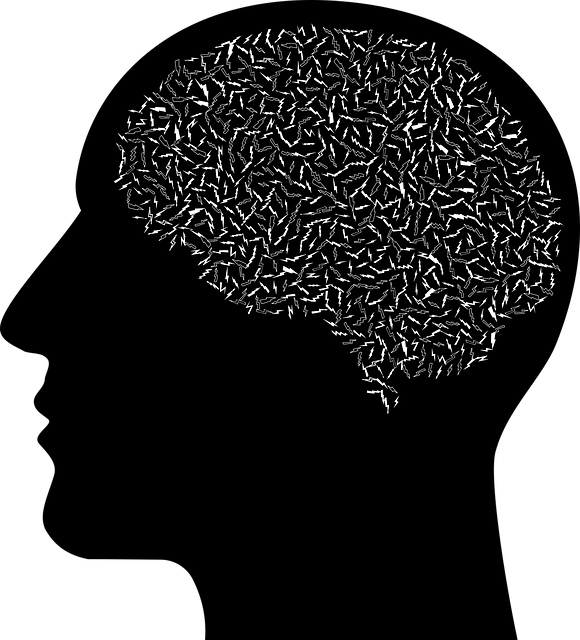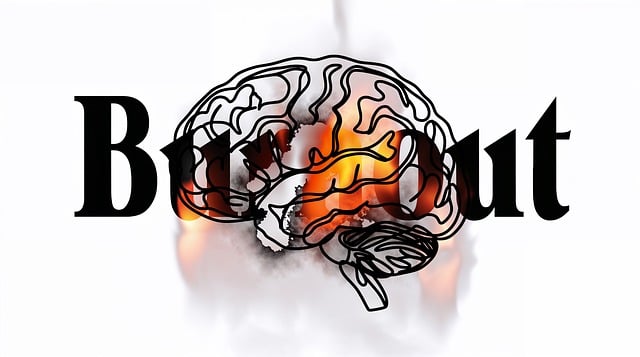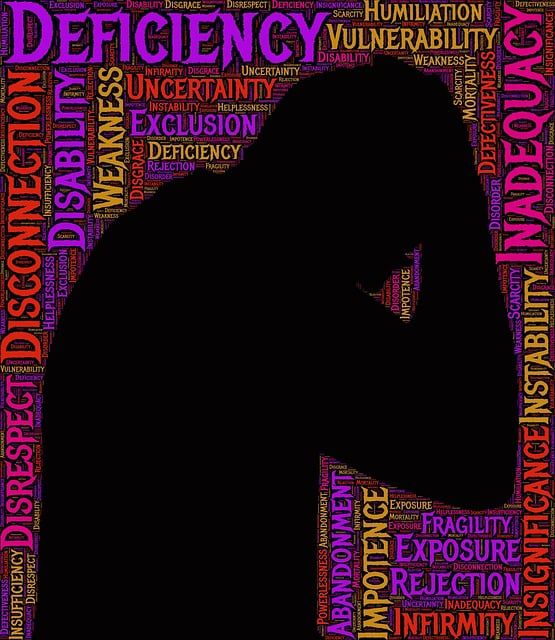Media representation significantly shapes public perceptions of mental health, particularly in Colorado Springs, where accessible developmental disability therapy services exist. Positive media coverage can increase awareness, reduce stigma, and encourage early interventions, while negative stereotypes can cause misconceptions and harm those with mental health struggles. Colorado Springs is leading efforts to improve this representation through collaborative initiatives between local therapists, mental health professionals, community outreach programs, and risk assessment tools. Training healthcare providers in cultural competency and implementing burnout prevention strategies further promote accurate and empathetic portrayals. By integrating emotional intelligence into storytelling, media can foster understanding and resilience, challenging stereotypes and creating a more supportive environment for developmental disability therapy and mental health journeys. Notable media examples like "Atypical" and "Silver Linings Playbook" positively influence public discourse on these issues in Colorado Springs and beyond.
“The media’s portrayal of mental illness can significantly shape public perception, often reflecting societal attitudes and contributing to stigma. This article explores this complex issue, focusing on Colorado Springs as a case study for its proactive approach in addressing developmental disabilities and mental illnesses in media. We analyze current representations, uncover biases, and propose strategies for positive change.
Additionally, successful media portrayals of mental health will be highlighted, showcasing how accurate and diverse narratives can foster understanding and support, while also offering valuable insights for Colorado Springs Developmental Disability Therapy practices.”
- Understanding the Impact of Media Portrayal on Mental Health Perception
- The Current State: How Colorado Springs Addresses Developmental Disability and Mental Illness in Media
- Identifying Biases and Stereotypes: Uncovering the Challenges
- Strategies for Positive Change: Enhancing Media Representation
- Case Studies: Successful Media Portrayals of Mental Illness and Developmental Disabilities
Understanding the Impact of Media Portrayal on Mental Health Perception

The media plays a significant role in shaping public perceptions about mental health, often influencing how individuals with developmental disabilities and other mental illness are viewed by society. Positive and accurate representation in movies, TV shows, and news articles can significantly boost public awareness campaigns and promote understanding. This is crucial for fostering an inclusive environment, reducing stigma, and encouraging early interventions. On the flip side, negative or stereotypical portrayals can lead to misconceptions, causing harm to those struggling with mental health issues.
In Colorado Springs, where developmental disability therapy services are readily available, the impact of media representation becomes even more apparent. Accurate portrayal can inspire confidence in seeking such services, while inaccurate depictions might deter individuals and their families from reaching out for support. Therefore, it is essential to encourage responsible media coverage and initiate burnout prevention strategies for healthcare providers who tirelessly work towards improving mental health services, ensuring that these efforts resonate with the broader public through effective communication and education.
The Current State: How Colorado Springs Addresses Developmental Disability and Mental Illness in Media

In Colorado Springs, efforts to represent developmental disability and mental illness in media have been notable, with initiatives aimed at challenging stereotypes and fostering understanding. Local therapists and mental health professionals are actively involved in creating and promoting empathy-building strategies that depict individuals with mental health conditions authentically. These efforts extend to community outreach programs that educate the public about various aspects of mental wellness, including coping skills development for those facing challenges.
Through these collaborative endeavors, Colorado Springs is making strides in improving media representation, particularly by implementing risk assessment tools for mental health professionals to ensure safe and effective support. This comprehensive approach not only addresses the current state of mental illness portrayal but also paves the way for a more inclusive and empathetic society, where individuals with developmental disabilities and mental health conditions are seen and heard.
Identifying Biases and Stereotypes: Uncovering the Challenges

In the realm of mental health representation, media often perpetuates biases and stereotypes that impact public perception. Colorado Springs developmental disability therapy practitioners frequently encounter clients struggling with stigma associated with mental illness, which can be exacerbated by media portrayals. Stereotypes, such as depicting individuals with mental illnesses as violent or unpredictable, contribute to fear and misunderstanding. These misconceptions not only hinder access to care but also foster an environment of judgment and exclusion.
Addressing these challenges requires a multi-faceted approach. Healthcare provider cultural competency training plays a pivotal role in equipping professionals with the knowledge and skills to recognize and challenge biases. Additionally, initiatives like burnout prevention and mental wellness coaching programs development can empower individuals to advocate for accurate representation. By fostering an environment of empathy and understanding, we can work towards breaking down barriers and ensuring support for those navigating mental health journeys.
Strategies for Positive Change: Enhancing Media Representation

In the pursuit of positive change regarding mental health representation in media, a strategic approach is essential. Enhancing media portrayal involves various methods to foster more accurate and compassionate depictions. One key strategy is to encourage industry professionals to incorporate emotional intelligence into their creative processes. By integrating emotional intelligence, writers and producers can create nuanced characters with depth, allowing viewers to connect on a personal level. This, in turn, promotes empathy building strategies within the audience, fostering a better understanding of mental health struggles.
Additionally, media outlets can actively seek input from experts like therapists specializing in Colorado Springs developmental disability therapy. Their insights can ensure storylines are not only accurate but also promote resilience-building narratives. By collaborating with professionals and individuals living with mental health challenges, media creators can challenge stereotypes and present powerful, positive messages that resonate with audiences, fostering a more inclusive and supportive societal environment.
Case Studies: Successful Media Portrayals of Mental Illness and Developmental Disabilities

In recent years, media has played a pivotal role in shaping public perception of mental illness and developmental disabilities. Several successful case studies highlight effective portrayals that challenge stereotypes and promote understanding. For instance, television shows like “Atypical” have showcased individuals with autism spectrum disorder (ASD), providing insights into their unique experiences and promoting empathy among viewers. Similarly, films such as “Silver Linings Playbook” offer nuanced representations of bipolar disorder, moving beyond simplistic tropes to depict the complexity of the condition.
These positive depictions are particularly significant in the context of Colorado Springs developmental disability therapy, where media can serve as a valuable tool for education and support. By presenting realistic and sympathetic portrayals, media helps reduce stigma and promotes acceptance. Moreover, it encourages open conversations about mental health issues, inspiring viewers to seek help or offer assistance to those facing similar challenges. Such representations also benefit healthcare providers by emphasizing the importance of stress reduction methods like mindfulness meditation as burnout prevention strategies, thereby fostering a more compassionate and informed support system for individuals with developmental disabilities.
In addressing the challenge of mental illness representation in media, Colorado Springs has emerged as a leader with its proactive approach, exemplified by initiatives focused on enhancing accuracy and inclusivity. By identifying biases and stereotypes, the city fosters more positive perceptions of mental health through strategic changes in media content. Successful case studies highlight the impact of authentic portrayals, inspiring further efforts to improve media representation across the globe. For those seeking Colorado Springs developmental disability therapy or support for mental illness, these advancements offer hope for a future where understanding and compassion are prevalent in every narrative.














